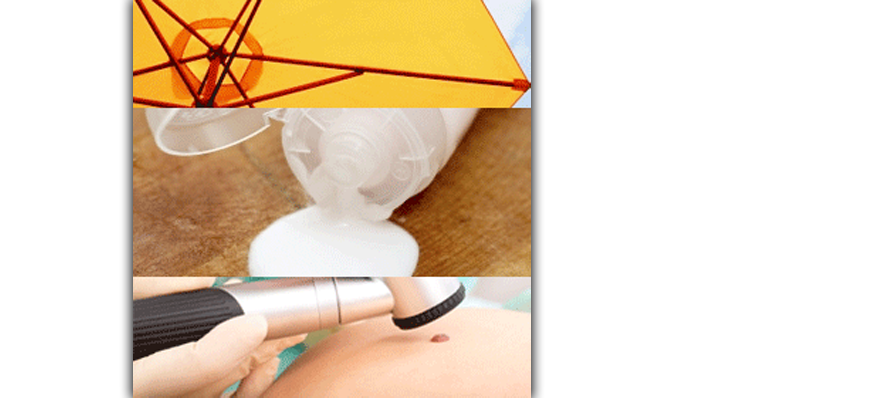List of Products We Suggest Discontinuing or Not Using
List of Products That May Be Continued (But Please Check All Your Product Choices With Your OB-GYN and Pediatrician)
On Prevention and Sunscreen Use While Pregnant
General Information on Pregnancy/Lactation and Active Ingredients
Q: I’m pregnant…or have given birth and am now breastfeeding. Can I still use my favorite VMV HYPOALLERGENICS® products?
A: While there are no conclusive studies that show that cosmetics can affect fetal or infant development, it is our philosophy at VMV HYPOALLERGENICS® not to take any chances with your little bundle of joy. Above all else, while pregnant or nursing, we recommend that you consult with your OB-GYN about any product (VMV or not) that you are considering using.
List of Products We Suggest Discontinuing or Not Using
We normally suggest — for at least until the 3rd trimester, but ideally for the entire pregnancy — that you discontinue products with active ingredients that are not washed off quickly, such as:
- Id Anti-Acne, Anti-Aging Face, Chest, Back and Body Exfoliating Lotion
- Id Clarifying and Firming Toner and Aftershave
- Illuminants+ Brilliance Treatment Primary Cream
- Illuminants+ Brilliance Treatment Advanced Cream
- Illuminants+ Face-Hand-Body Lotion
- Illuminants+ Axillight Treatment Antiperspirant
- Re-Everything Treatment Toner
- Re-Everything Anti-Aging Cream: Primary Treatment
- Re-Everything Anti-Aging Cream: Advanced Treatment
- Re-Everything Eye Serum
- Re-Everything Face-Hand-Body Lotion
- Superskin 1 Primer Toner
- Superskin 1 Toner
- Superskin 2 Primer Toner
- Superskin 2 Toner
- Superskin 3 Primer Toner
- Superskin 3 Toner
List of Products That May Be Continued
Other products that can be continued (with the guidance of your OB-GYN at all times, of course):
- All Grandma Minnie Mom & Baby products
- Armada Sun and Light Screens (If you and/or your OB-GYN are uncomfortable using protection products with chemical (also known as organic) sunscreens, or if you are allergic to organic sunscreens, try our purely physical (also called inorganic) sun and light screens: Armada Baby 50+ or Armada Post-Procedure Barrier Cream 50+, and do not use VMV makeup products with sunscreens.
- All Essence Skin-Saving Hair, Body and Bath Care products
- Id Buff-Buff Apricot and Salicylic Clarifying Soap
- Id Facial Cleanser and Shaving Cream
- Id Skin-Buffing Pumice and Salicylic Facial Cleanser
- Monolaurin Gel
- Illuminants+ Cleansing Cream
- Re-Everything Cleansing Cream
- Red Better Deeply Soothing Cleansing Cream
- SuperSkin Care Moisture Rich Creammmy Cleansing Milk for Dry Skin
- SuperSkin Care Moisture Rich Mild-Mannered Cleansing Scrub for Dry Skin
- SuperSkin Care Creammmy-Rich Intensive Moisture Milk 15 for Dry Skin
- SuperSkin Care Hydra Balance Gentle Cream Cleanser for Combination Skin
- SuperSkin Care Hydra Balance Smart Cleansing Scrub for Combination Skin
- SuperSkin Care Spring Cleaning Purifying Facial Wash for Oily Skin
- SuperSkin Care Spring Cleaning Oil-Control Antibacterial Scrub for Oily Skin
- SuperSkin Care Plus Fine Finish Pore Minimiser for Combination to Oily Skin
- SuperSkin Care Plus Alcohol-Free Tender Toner for all skin types
- All Skintelligent Beauty Makeup
On Prevention and Sunscreen Use While Pregnant
PREVENTION:
Remember that, as with all things health-related, prevention is as important as (and can be more important than) therapy.
For example, if acne becomes a problem during pregnancy or while nursing:
- Acne on the forehead, neck, cheeks: you may want to explore our shampoo and conditioner (Essence or Grandma Minnie).
- Acne around the mouth and/or chin, we invite you to explore our Essence Skin-Saving Toothpaste, formulated specifically for this condition.
- Your makeup, sunscreen, all other products should also be non-comedogenic and hypoallergenic (while allergens may not clog pores the way comedogens do, they can irritate pores and cause infections, i.e. acne).
For example, if skin dryness or itching becomes a problem:
- Our Grandma Minnie Mommycoddling All-Over Lotion or Oil’s Well Nourishing Do-It-Oil can help soothe and hydrate the areas, but …
- If you continue using creams, lotions, soaps, makeup, etc. with irritants or allergens you risk exacerbating the dryness and …
- Excessive dryness can lead to cracks in the skin through which microorganisms can enter that can cause infections (something we all want to avoid during pregnancy).
For more on Dryness, click here
SUNSCREEN USE:
Whether you use chemical (also called organic)-free sunscreens or not, we recommend continuing with your sunscreen use, daily, both indoors and outdoors all throughout pregnancy. This can help prevent or minimize melasma (dark spots and blotches) and other hyperpigmentations that can be common to some pregnant women.
General Information on Pregnancy/Lactation and Active Ingredients
While there are no conclusive clinical studies showing that active ingredients topically applied on the skin, especially at the concentrations found in our active skin care, can (positively or negatively) affect fetal development (much less the milk that gets to your baby), your OB-GYN (gynecologist) and pediatrician would be your best resources regarding the latest studies available. Consulting with her/him on a regular basis will provide you with the best guidance for your particular case.
Some information that may help you and your OB-GYN:
- There are no conclusive studies showing positive or negative effects on fetal development or milk content from topically applied products.
- Historically, the active ingredients that have caused the most concern when taken internally are retinoic acid (found in our Superskin Toners) and salicylic acid (found in Id Toner and Lotion), not glycolic acid (found in Re-Everything and Illuminants+ products) which is a simple sugarcane-derived ingredient, or mandelic acid (found in our Superskin Primer Toners).
- Retinoic acid raises a big alarm because it is teratogenic (it affects growing cells, which blastocysts are). However, the concentrations used in cosmetics are so small that it is still considered unlikely that enough of it can penetrate to cause any damage; still, retinoic acid is, by far, the active ingredient that causes the most red flags for pregnant women and it probably should be avoided altogether regardless of the concentration.
- The percentage of actives in most cosmetics is usually very low. At VMV HYPOALLERGENICS®, we use concentrations that are proven to be effective, but even these concentrations are quite low. Many of our active toners, for example, contain about 2.5% of the active ingredient in a 120mL solution. This means that even if the active ingredient could penetrate the bloodstream (already unlikely due to the relatively large molecular size of many ingredients) and make it to the fetus (unlikely), the actual percentage of the active that would have the chance to reach the bloodstream and fetus during each application is very, very small—because it is present in such low concentrations as it is, is further diluted in a solution of much greater volume, and is only applied in small amounts on the skin (and because the molecular size makes penetration past the dermis unlikely).
- For example: 2.5% of an active mixed into an entire 120mL solution of a toner means 3g of the active in the solution. Let’s assume that the toner is finished in 30 days. To estimate, dividing 3g by 30 days results in around 0.1g of the active ingredient getting to the skin per application. Because of the molecular size of the active, much of this 0.1g cannot penetrate beyond the dermis into the bloodstream, and even less could therefore possibly make it to the fetus.
- This is NOT a recommendation to use active ingredients during your pregnancy — as you can see at the start of this article, we are firm about discouraging the use of active ingredients during pregnancy and nursing. The reason for this is simple precaution: because studies are inconclusive, we would rather play extra safe with pregnant and nursing mothers and discourage the use of active ingredients that are not immediately washed off the skin during pregnancy and lactation.
- PLEASE FOLLOW THE RECOMMENDATIONS OF YOUR OB-GYN AND PEDIATRICIAN STRICTLY.
Data regarding the effects (positive or negative) of topical skin treatments on fetal or infant development at this point may be inconclusive; but for anything taken orally, you should be conscientious and always consult your doctor beforehand.
You’ll be seeing your gynecologist soon and regularly, then your child’s pediatrician. These visits, more than anything, will help you best monitor your baby’s healthy development.




